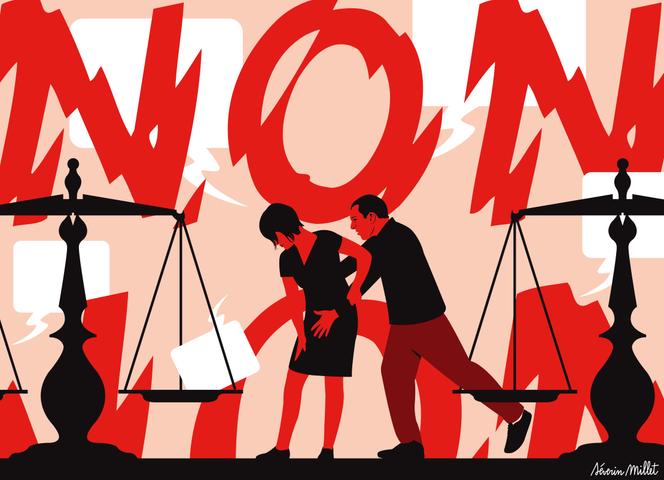


For several weeks, the French government had been suggesting that the law defining rape would not be changed, but the debate on the issue has suddenly picked up speed. On Friday, March 8, during the ceremony to formally enact the constitutional amendment adding the freedom of abortion to the Constitution, President Emmanuel Macron declared that he would "inscribe in French law" the notion of consent.
A few days earlier, in Le Figaro Madame, Justice Minister Eric Dupond-Moretti made a similar pledge, albeit less definitively. "On the subject of rape, my goal is to continually improve our tools, including legal ones. So, while I call for caution when it comes to the criminal code – which is normal given my role as justice minister – I'm not ruling out any consideration of the question of rape's definition," he said.
Rape is a major and common crime that is rarely or poorly prosecuted. According to the French Justice Ministry's statistics, however, the number of rape convictions has been on the rise since 2017. There were 960 rape convictions that year, compared with 1,260 in 2022. That equates to an increase of 30%.
Is the low level of prosecution of rape a legal problem due to an article of the law – written just over 40 years – that deserves to be strengthened, or a more operational challenge that could be improved by allocating more resources and better training to investigators and judges? At the European Union level, legislative options have been encouraged.
In its initial draft, presented on March 8, 2022, the European Commission proposed that the "crime of rape" rely on the condition that the victim had "not consented to the sexual act." Surprisingly, France was one of the member states (along with Germany, the Netherlands and Hungary) opposed to a Europe-wide definition of rape based on the notion of consent, which led the European Union (EU) to eventually give up on the idea.
The Justice Ministry denied having changed its mind: "These are two different issues. As far as the debate at the European level is concerned, it's an issue that was exploited by some during the European elections campaign [notably by left-wing Parti Socialiste lead candidate Raphaël Glucksmann], and we didn't want to get dragged into it, especially as the EU does not have the authority to define the crime of rape. The gravity of the issue requires us to take it seriously, and we have stuck to the same position. Regarding the definition of rape, the minister has always said that he is willing to improve all tools, including legal ones. In fact, this is what he did in 2021 with the Billon Law, which led to a major breakthrough by adding that a minor under the age of 15 cannot consent to a sexual act with an adult. And also by adding a sliding scale for statutes of limitations, which made it possible to prosecute certain statute-barred rapes when they were committed serially and one of them was not statute-barred."
You have 66.09% of this article left to read. The rest is for subscribers only.
